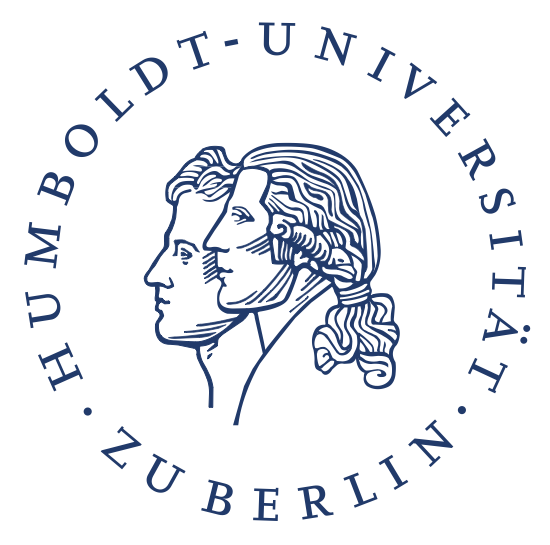Projektleitung
Mitarbeiter
Hilfskraft
Experiencer im Sprachvergleich
In diesem Projekt beschäftigen wir uns mit dem Phänomenbereich der Psych-Verben. Im Mittelpunkt unserer Untersuchung steht der empirisch fundierte Sprachvergleich ihres syntaktischen und semantischen Verhaltens. In der aktuellen Projektphase führen wir eine breit angelegte typologische Untersuchung der Psych-Alternation durch. Zu den Ergebnissen der vorherigen Projektphase, siehe hier.
Aktuelles
| 1st International Summer School on "Language Comparison and Typology: German and the Mediterranean languages”, Aristoteles University of Thessaloniki |
28th-30th August 2019 |
| Cross-linguistic investigation of argument structure: experimental and observational research by Elisabeth Verhoeven. More information here. |
|
| The 52nd Annual Meeting of the Societas Linguistica Europaea (SLE), Leipzig University, Germany |
21st–24th August 2019 |
| Reflexivizing Spanish psych-verbs: Ambiguities across classes by Paola Fritz-Huechante & Antonio Machicao y Priemer. |
|
| The 26th International Conference on Head-Driven Phrase Structure Grammar (HPSG 2019), University of Bucharest, Romania |
24th–26th July 2019 |
| Boundaries at play: Left-bounded reading of the se-morpheme in the Spanish psych-domain by Antonio Machicao y Priemer & Paola Fritz-Huechante. |
|
| The 12th Mediterranean Morphology Meeting (MMM12), University of Ljubljana, Slovenia |
27th–29th June 2019 |
| Reflexivizing Spanish psych-verbs: Ambiguities across classes by Antonio Machicao y Priemer & Paola Fritz-Huechante. |
|
| Subject agenthood and non-inception readings: Evidence from Spanish and Korean psychological verbs, Uniwersytet Wrocławski, Poland |
6th–7th June 2019 |
| By Paola Fritz-Huechante. Joint work with Elisabeth Verhoeven & Julian A. Rott. |
|
| Workshop: "Recent Approaches to (Non-)Agentivity in Natural Language", National University of Singapore |
3rd-4th May 2019 |
| Agentivity and the typology of the psych alternation. by Elisabeth Verhoeven. More information here. |
|
| 1. Internationaler Workshop „Sprachvergleich und Typologie: Deutsch und die Sprachen des Mittelmeerraumes“, Humboldt Universität zu Berlin |
12th October 2018 |
| Morphological markedness in discourse: A cross-linguistic corpus study. by Elisabeth Verhoeven. |
|
| Modelling Spanish Psych Verbs in HPSG: Word order, Case, Theta-Roles and Eventuality Structure (poster) by Paola Fritz-Huechante & Antonio Machicao y Priemer. |
|
| Syntax of the World's Languages VIII, Paris |
3rd–5th September 2018 |
| A cross-linguistic perspective on the interaction of predicate structure, valence orientation and canonicity in psych expressions by Julian A. Rott, Elisabeth Verhoeven & Paola Fritz-Huechante. |
|
| 51st Annual Meeting of the Societas Linguistica Europaea (SLE 2018), Tallinn |
29th Aug – 1st Sept 2018 |
| Psych epiphenomena. A typology of the interplay of valence orientation and syntactic canonicity by Julian A. Rott, Elisabeth Verhoeven & Paola Fritz-Huechante. |
|
| 25th International Conference on Head-Driven Phrase Structure Grammar (HPSG 2018), University of Tokyo, Japan |
30th June – 2nd July 2018 |
| Unmarked word order in Korean and Spanish psych-verbs: Interaction of case, theta-roles, and event structures in HPSG by Antonio Machicao y Priemer & Paola Fritz-Huechante. |
|
| 5th European Workshop on HPSG (EW-HPSG 2018), Goethe-Universität, Frankfurt |
1st-2nd June 2018 |
| Unmarked word order in the psych domain: Contrasting Spanish and Korean by Antonio Machicao y Priemer & Paola Fritz-Huechante. |
|
| Datives vs. accusatives, Humboldt-Universität zu Berlin |
24th May 2018 |
| A cross-linguistic experiment on object fronting.
Berlin Dative Days by Elisabeth Verhoeven. |
|
| Seminar, Centre de Lingüística Teòrica, Universitat Autònoma de Barcelona |
9th March 2018 |
| Morphological directionality and event structure of the psych-alternation: the case of Spanish, Korean and Finnish by Paola Fritz-Huechante. Joint work with Elisabeth Verhoeven & Julian A. Rott. |
|
| Linguistic Evidence 2018, Universität Tübingen |
17th February 2018 |
| A cross-linguistic empirical approach to emotion lexis and syntax by Julian A. Rott, Elisabeth Verhoeven & Paola Fritz-Huechante. More information here. |
|
| Argument Structure across Modalities (ASAM) 2018, Universiteit van Amsterdam, Amsterdam, NL |
1st-2nd February 2018 |
| Structural effects of morphological directionality in psych verbs. A typology. by Julian A. Rott, Elisabeth Verhoeven & Paola Fritz-Huechante. More information here. |
|
| Endpoints, scales, and results in the decomposition of verbal predicates (ENDPOINTS 2018), Humboldt Universität zu Berlin, Berlin |
30th-31st January 2018 |
| Inchoative states, gradable states and (anti-)causativization in the psych domain: the cases of Spanish and Korean by Paola Fritz-Huechante, Elisabeth Verhoeven & Julian A. Rott. More information here. |
|
| Workshop on Linguistic Variation at the Interfaces (VARINT) 2017, Universidad Autónoma de Madrid, Madrid, Spain |
16th-17th November 2017 |
| What does take to culminate? Morphological directionality and semantics of the psych-alternation by Paola Fritz-Huechante, Elisabeth Verhoeven & Julian A. Rott. More information here. |
|
| Labex EFL, Paris 3 & CNRS, Lecture series |
5th, 11th, 18th, 25th September 2017 |
| Cross-linguistic investigation of argument structure: experimental and observational research by Elisabeth Verhoeven. Mehr Informationen finden Sie hier. | |




